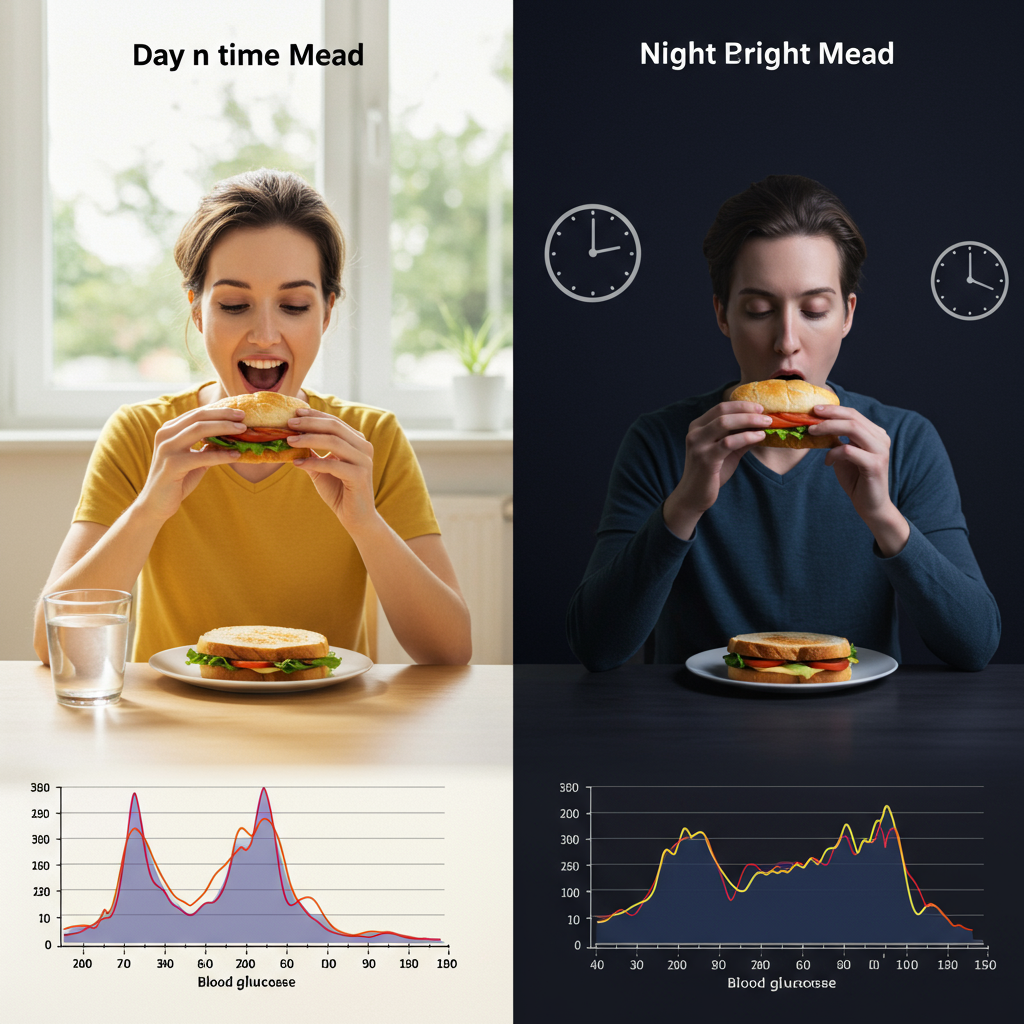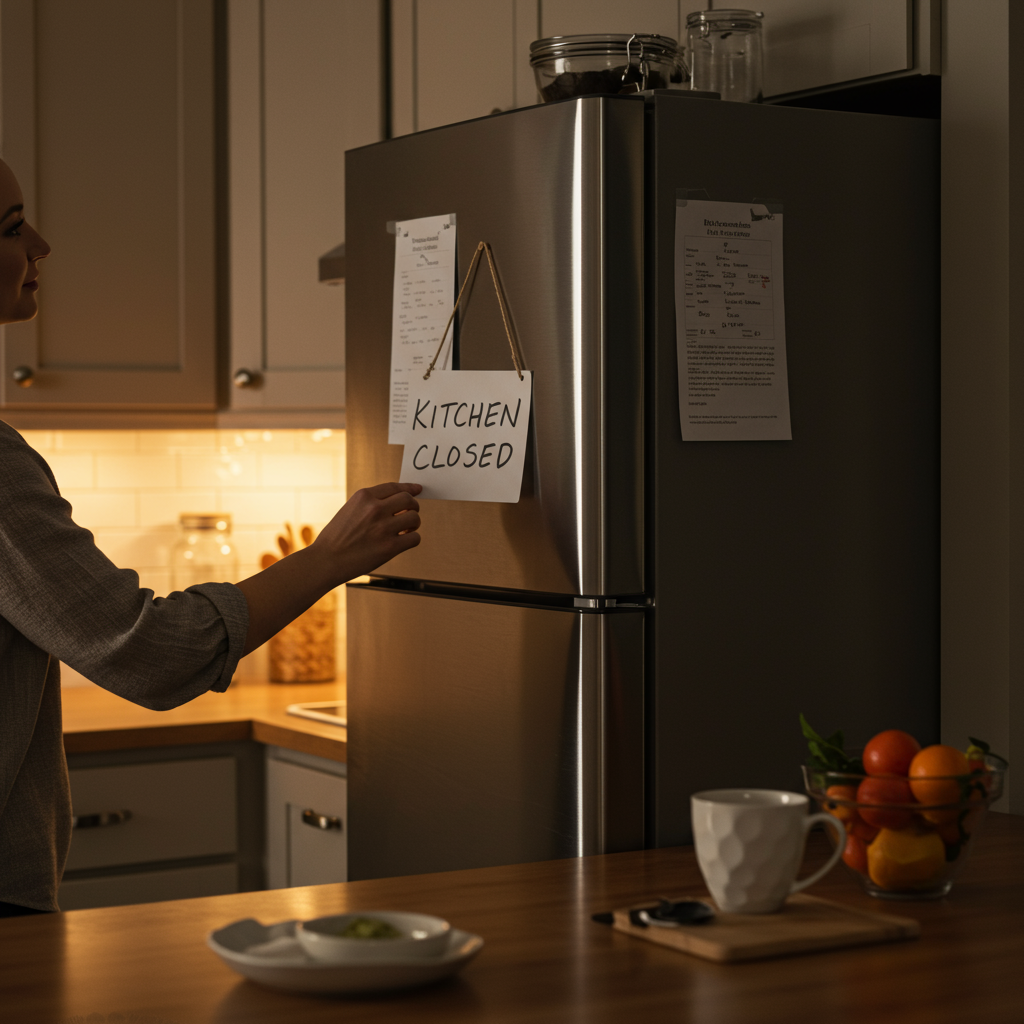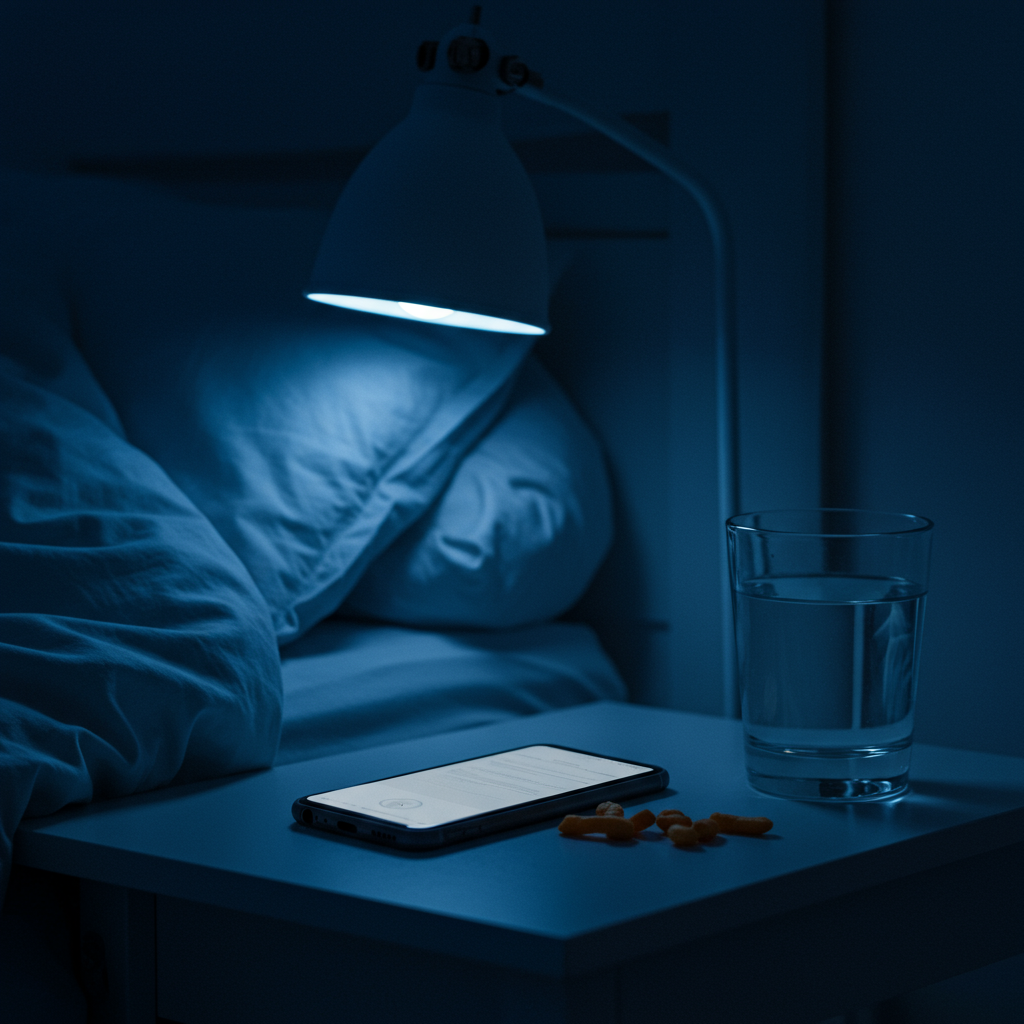The Midnight Munchie Trap: How Late-Night Snacking Derails Your Blood Sugar Balance
Late-night snacking—we've all been there. The house is quiet, everyone's asleep, and somehow you find yourself standing in front of the refrigerator's glow, contemplating that leftover pizza or pint of ice cream. But what seems like an innocent habit might actually be undermining your metabolic health in significant ways. As someone passionate about functional medicine approaches to diabetes, I want to share why your nighttime nibbling habits could be sabotaging your blood sugar balance and overall health.
Your Body's Natural Rhythm and Blood Sugar
Our bodies operate on a carefully orchestrated circadian rhythm—an internal clock that governs countless biological processes including hormone production, metabolism, and yes, blood sugar regulation. This isn't just about sleep; it's about your body's entire metabolic programming.
During daylight hours, your body is primed to process food efficiently. Insulin sensitivity is typically higher, meaning your cells readily accept glucose from your bloodstream. But as evening approaches, this system begins to wind down. Research has consistently shown that insulin sensitivity decreases throughout the day, reaching its lowest point during the night hours.
This means that identical meals eaten at different times will produce dramatically different blood sugar responses. A sandwich at noon might cause a moderate rise in blood glucose, while that same sandwich at midnight could trigger a significantly higher and more prolonged spike—simply because your body isn't physiologically prepared to handle it during its "rest and repair" phase.

The Cascading Effects of Nighttime Blood Sugar Spikes
When you eat late at night, particularly carbohydrate-rich or processed foods, you're setting off a problematic chain reaction:
Elevated overnight glucose levels: That bedtime snack causes blood sugar to rise precisely when your body is least equipped to manage it, often leading to extended periods of hyperglycemia throughout the night.
Disrupted sleep quality: High blood sugar interferes with your deep sleep cycles. Even if you don't fully wake up, your sleep architecture changes, reducing restorative sleep and triggering stress hormone release.
Morning insulin resistance: Poor sleep quality and nighttime blood sugar fluctuations create what I call the "morning metabolic hangover"—waking up with higher fasting blood sugar and increased insulin resistance that can persist throughout the day.
Increased cravings: This cycle perpetuates itself as disrupted blood sugar regulation triggers more intense hunger and cravings the following day, especially for quick-energy carbohydrates.
For those already managing diabetes or prediabetes, this pattern is particularly damaging. Many of my patients discover that eliminating late-night eating alone can reduce their morning blood sugar readings by 20-30 mg/dL—a significant improvement without changing medications.
Breaking the Late-Night Snacking Cycle
The good news is that making strategic changes to your evening routine can dramatically improve your blood sugar balance. Here's how to transform your approach:
Implement a "kitchen closing time": Establish a firm cutoff for eating, ideally 3 hours before bedtime. I tell my patients to literally put a "Kitchen Closed" sign on their refrigerator as a visual reminder.

Front-load your nutrition: Shift more of your caloric intake to earlier in the day. A protein-rich breakfast and substantial lunch support better blood sugar regulation throughout the day and reduce evening hunger.
Address the root causes of nighttime hunger: Late-night eating often stems from inadequate daytime nutrition, stress, poor sleep hygiene, or simply habit. Identify your personal triggers and develop specific strategies to address them.
Create an evening ritual: Replace snacking with calming activities that signal to your body it's time for rest—herbal tea, gentle stretching, reading, or meditation can all help break the association between evenings and eating.
If you must eat: Sometimes, medication timing or other factors necessitate some evening nutrition. In these cases, opt for low-glycemic options that combine fiber, healthy fat and protein—like a small handful of nuts, a few slices of turkey, or some cucumber with guacamole.
The Transformative Power of Timing
The concept that when you eat matters as much as what you eat represents a paradigm shift in how we approach metabolic health. This isn't about restriction—it's about working with your body's natural rhythms rather than against them. By simply rearranging when you consume your calories, you can dramatically improve blood sugar regulation without changing your overall diet.
Many of my patients report that once they establish an evening eating cutoff, they experience better sleep, more stable energy levels, reduced cravings, and improved morning blood sugar readings within days. These benefits compound over time, creating a positive cycle of metabolic improvement.
Remember that your body is designed to process food during daylight hours and repair itself at night. By honoring this fundamental biological rhythm, you're not just avoiding blood sugar spikes—you're supporting your body's natural healing processes and creating the foundation for lasting metabolic health.

References:
Poggiogalle E, Jamshed H, Peterson CM. (2018). Circadian regulation of glucose, lipid, and energy metabolism in humans. Metabolism, 84:11-27. doi: 10.1016/j.metabol.2017.11.017.
Mason IC, Qian J, Adler GK, Scheer FAJL. (2020). Impact of circadian disruption on glucose metabolism: implications for type 2 diabetes. Diabetologia, 63(3):462-472. doi: 10.1007/s00125-019-05059-6.






